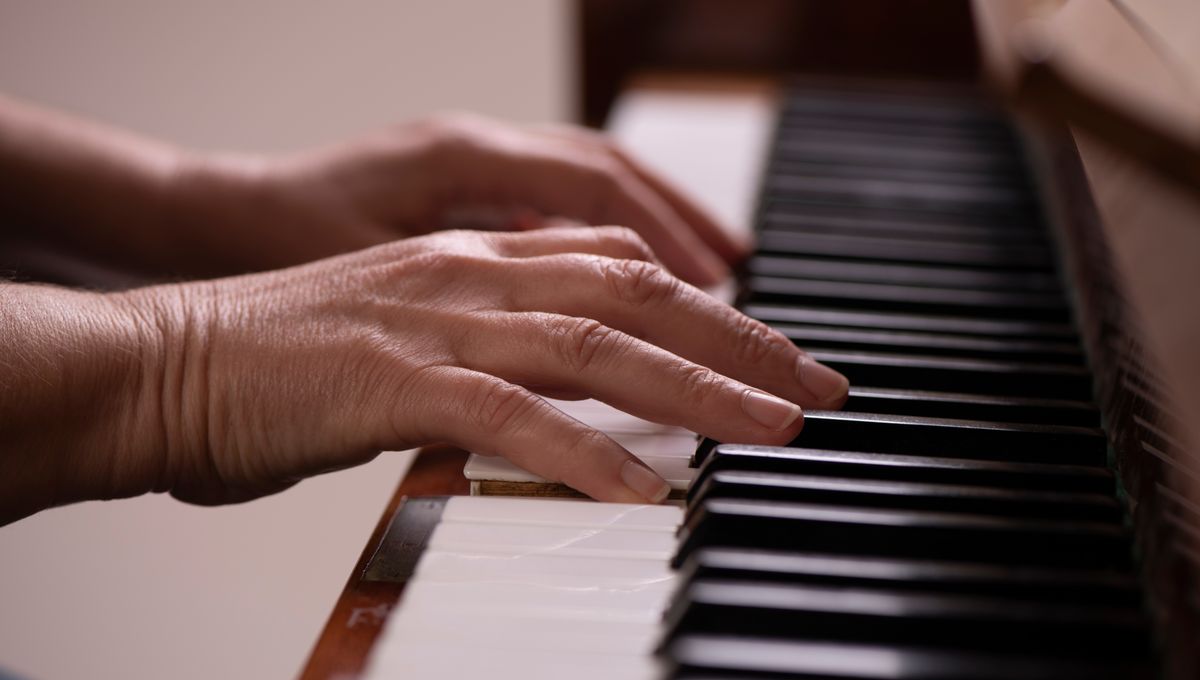
A robotic “smart hand” that could help musicians who suffer strokes to regain their ability to play their instruments has been developed by a team of scientists. The lightweight, flexible glove can be customized for each wearer, and uses machine learning technology.
“Here we show that our smart exoskeleton glove, with its integrated tactile sensors, soft actuators, and artificial intelligence, can effectively aid in the relearning of manual tasks after neurotrauma,” said lead author Dr Maohua Lin, an adjunct professor in the Department of Ocean & Mechanical Engineering at Florida Atlantic University, in a statement.
Research has suggested that music therapy can be helpful for the recovery of language and motor functions after a stroke. For people who are already musically trained, it’s understandable that they would want to get back to playing their instruments as soon as possible, but relearning a skill that requires such high levels of dexterity and coordination can be challenging.
The new robotic glove aims to help with that. Weighing just 191 grams (7 ounces), it’s been designed in such a way that all the integrated components are put in place via a single molding process, making it easy to produce via 3D printing.
The pneumatic actuators in each fingertip allow for similar fine movements as can be achieved with a human hand, while 16 sensors provide tactile sensations, so the user can really “feel” the surfaces or objects they’re touching. The aim would be for a patient to wear a pair of the gloves, so that each hand can independently regain coordination and dexterity during their recovery.
“While wearing the glove, human users have control over the movement of each finger to a significant extent,” explained senior author Dr Erik Engeberg, a professor at Florida Atlantic University. “The glove is designed to assist and enhance their natural hand movements, allowing them to control the flexion and extension of their fingers. The glove supplies hand guidance, providing support and amplifying dexterity.”
To test out their innovation, the team programmed a glove with the series of movements necessary for it to move by itself to play a simple song on the piano. There was also a series of tests in which the glove was worn by a 25-year-old volunteer. Using machine learning algorithms, the researchers successfully trained the glove to tell the difference between correct and incorrect piano playing, a first for this kind of technology.
This opens the door for the glove to be able to provide feedback to a user, helping them to improve their performance over time. And it need not stop at music.
“Adapting the present design to other rehabilitation tasks beyond playing music, for example object manipulation, would require customization to individual needs. This can be facilitated through 3D scanning technology or CT scans to ensure a personalized fit and functionality for each user,” said Lin.
The Centers for Disease Control and Prevention estimate that more than 795,000 people in the US have a stroke each year. Over half of survivors aged 65 and above experience a reduction in mobility, which gives some indication of the number of people who may potentially benefit from this technology.
The researchers acknowledge some challenges that still need to be overcome, such as refinement of the machine learning algorithms, but as they say in their paper, “These findings highlight the potential of the smart exoskeleton to aid disabled individuals in relearning dexterous tasks like playing musical instruments.”
The study is published in Frontiers in Robotics and AI.
Source Link: Robot Hand Taught To Play Piano Could Help Stroke Survivors Recover Musical Skills